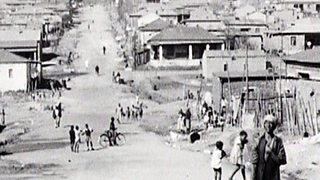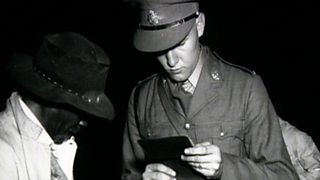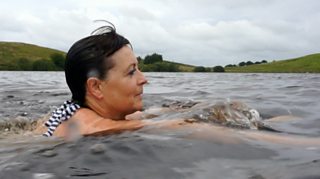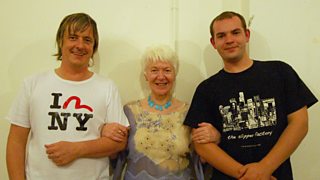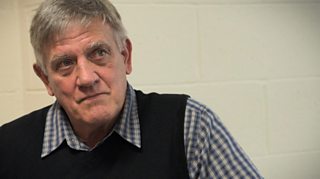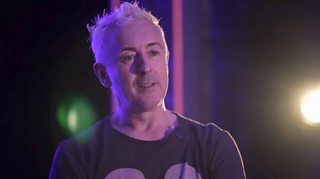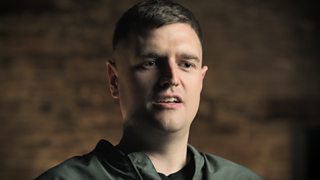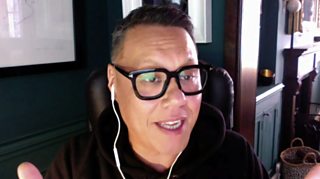The sinister campaign of threats and violence faced by a Glasgow couple who protested against South African apartheid
“We’re coming to get you.”
That was the terrifying threat Maggie Chetty received in an apartheid-era phone call to the home she shared with husband Radha.
They believe the call came from South African Special Branch operatives, active in the UK at the time.
Radha Chetty had left his South African home in 1957. He was denied an education under the country’s apartheid laws which , but in Britain he was free to enrol at university in Glasgow.
Radha married Maggie, a local activist, and the couple settled in the city, but they remained mindful of the troubles in South Africa and did what they could to raise awareness.
“We’d had a whole stream of people coming to stay with us from the African National Congress,” said Maggie on Glasgow, Love and Apartheid.
“People who came to speak at meetings, old family friends of the Chettys.”
These actions did not go unnoticed.
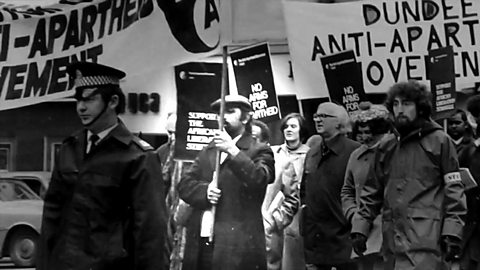
“We’re coming to get you”
The family received threatening phone calls and unwelcome visitors.
“I was very suspicious of the establishment in Britain that had an interest in keeping the South African government sweet because of economic interests,” Radha revealed.
The Chettys’ daily activities were monitored and photographed.
On one occasion, two burly men tried to force their way into their home.
“They were terrifying,” recalled Maggie.
“You knew you were dealing with people who would stop at nothing to maintain the relationship with the United Kingdom.”
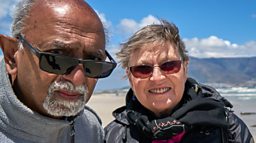
Glasgow’s protest of apartheid
As apartheid dragged on, the city of Glasgow made a stand against the South African regime.
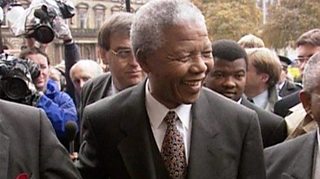
In 1981 it bestowed the freedom of the city to Nelson Mandela, who was still incarcerated in Robben Island.
And, in a controversial move, it renamed St George’s Place, home of the South African consulate-general, to Nelson Mandela Place.
South Africa under apartheid
Latest features from 91�ȱ� Scotland
-
![]()
'Wild swimming helps me process the grief of losing my son'
The benefits of cold water therapy.
-
![]()
Winter adventures are appealing, but an expert advises caution
Trips in winter require particular knowledge and skills.
-
![]()
The rescuers: Why volunteers risk their lives in mountain emergencies
Landward meets members of the Cairngorm Mountain Rescue Team.
-
![]()
‘Look for the light’ – practical tips to help you through another winter with SAD
Useful advice and tips to combat low moods at this time of year.
-
![]()
How you could be a binge drinker without even knowing
Binge drinking is classed as fewer units than many people may realise.
-
![]()
How chocolate biscuits and drama classes helped one man leave prison behind
The healing power of creativity.
-
![]()
'When people believe in you, it’s life-changing'
Author Graeme Armstrong revisits the man who helped turn his life around.
-
![]()
The 'breath-taking' display of US birds swept on to British soil
Recent storms have brought rare birds to our shores.
-
![]()
Six things we learned about Alan Cumming on Take the Floor (Spoiler: includes accordions)
The actor spoke to Take the Floor's Gary Innes.
-
![]()
How street gangs trap young men in a dangerous cycle of violence
The almost inescapable pull of life in a gang.
-
![]()
Why stylist Gok Wan believes there's no such thing as bad fashion
The fashion expert says we should stop following rules and do what feels right.
-
![]()
Is sending a CV still the right way to apply for a job?
They've been central to job applications for years, but are they worth it?
